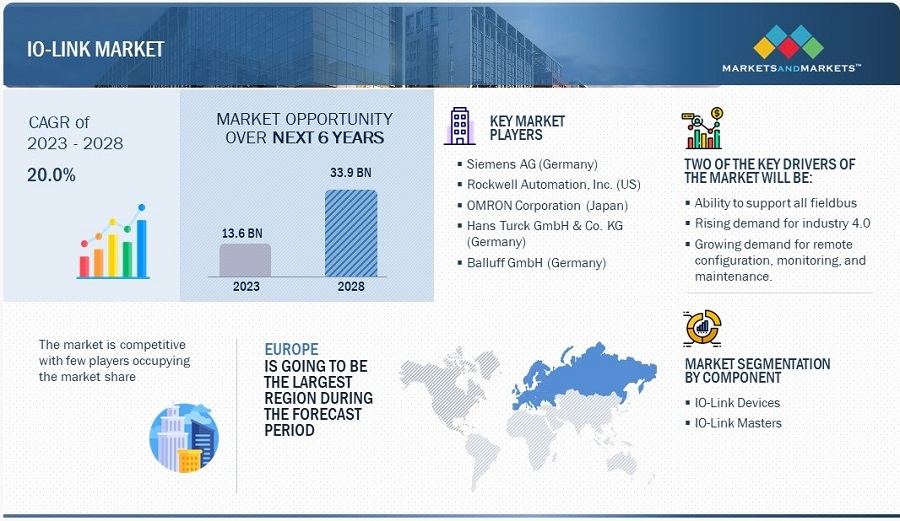According to a research report "Augmented Reality Market with COVID-19 Impact Analysis, by Device Type (Head-mounted Display, Head-up Display), Offering (Hardware, Software), Application (Consumer, Commercial, Healthcare), Technology, and Geography - Global Forecast to 2026" published by MarketsandMarkets, the augmented reality market was valued at USD 14.7 billion in 2020 and is projected to reach USD 88.4 billion by 2026; it is expected to grow at a CAGR of 31.5% from 2021 to 2026. The key factors driving the growth of the augmented reality market include surging demand for AR devices and applications in healthcare, growing demand for AR in retail and e-commerce sectors due to COVID-19, rising investments in the AR market, increasing demand for AR devices and technology in the global automotive industry, and others.
• Request for Customization :-https://www.marketsandmarkets.com/requestCustomizationNew.asp?id=82758548
Browse 169 market data Tables and 61 Figures spread through 216 Pages and in-depth TOC on "Augmented Reality Market - Global Forecast to 2026"
View detailed Table of Content here -https://www.marketsandmarkets.com/Market-Reports/augmented-reality-market-82758548.html
As a CEO interested in the Augmented Reality (AR) market, you may want to know the following:
Market size and growth potential: It is important to understand the current market size of AR and its expected growth in the future. The AR market is expected to grow significantly in the coming years, driven by the increasing adoption of AR technology in various industries such as gaming, healthcare, education, and retail.
Industry-specific applications: You may want to know about the specific applications of AR in various industries such as manufacturing, healthcare, retail, and entertainment. Understanding these applications will help you identify potential opportunities for your business.
Competition landscape: It is important to understand the competitive landscape of the AR market, including the major players, their market share, and their strategies. This information will help you identify potential partnerships, mergers and acquisitions, and investment opportunities.
Technical capabilities and limitations: You may want to know the technical capabilities and limitations of AR technology, including the hardware and software requirements, and the level of user experience that can be achieved.
Market trends and innovations: You may want to stay up-to-date with the latest trends and innovations in the AR market, such as advancements in hardware and software, and emerging use cases in new industries.
Regulatory and ethical considerations: You may want to understand the regulatory and ethical considerations associated with the use of AR technology, including privacy concerns, data protection, and potential legal challenges.
Hardware segment to account for the largest share of augmented reality market during the forecast period
On the basis of offering, the augmented reality market has been segmented into hardware and software. The hardware segment of the augmented reality market is projected to witness a higher growth rate than the software segment, owing to the increasing adoption of augmented reality hardware globally.
Consumer application to account for the largest share of augmented reality market during the forecast period
On the basis of application, the augmented reality market has been segmented into consumer, commercial, aerospace & defense, healthcare, enterprises (manufacturing), automotive, energy, and others. The consumer application segment is projected to account for the largest size of the augmented reality market from 2021 to 2026. The consumer segment of the market comprises gaming and entertainment applications wherein AR technology is used to create 3D visual objects in the real world. The flourishing gaming and sports and entertainment sectors fuel the use of AR technology in consumer applications. The demand for HMD is high in consumer applications. They are used in smart glasses in sports (such as ski driving and fighting games).
APAC to account for the largest share of augmented reality market during the forecast period
The
flourishing enterprises (manufacturing) sector in China and Japan is
projected to fuel the growth of the augmented reality market in APAC.
The gaming industry in this region has also witnessed significant
growth, thereby contributing to the increased demand for augmented
reality technology in APAC. Additionally, rising investments in
commercial applications of augmented reality are also expected to
contribute to the growth of the market in APAC. Moreover, the thriving
healthcare and automotive sectors in Japan are also projected to drive
the demand for AR technology in the region.
Some of the key
companies operating in the market are Google, Inc. (US), PTC Inc. (US),
Seiko Epson (Japan), Microsoft (US), Lenovo (Hong Kong), Samsung
Electronics (South Korea), Apple (US), and so on.
About MarketsandMarkets™
MarketsandMarkets™ provides quantified B2B research on 30,000 high growth niche opportunities/threats which will impact 70% to 80% of worldwide companies’ revenues. Currently servicing 7500 customers worldwide including 80% of global Fortune 1000 companies as clients. Almost 75,000 top officers across eight industries worldwide approach MarketsandMarkets™ for their painpoints around revenues decisions.
Contact:
Mr. Aashish Mehra
MarketsandMarkets™ INC.
630 Dundee Road
Suite 430
Northbrook, IL 60062
